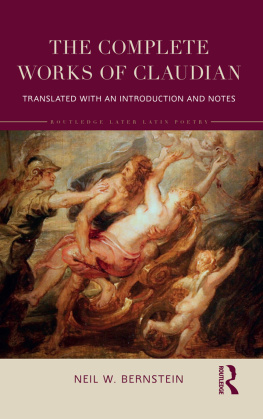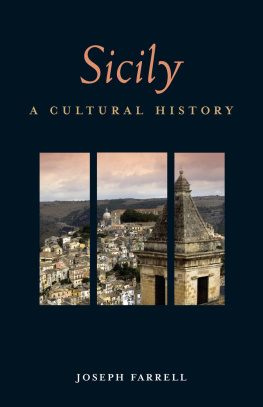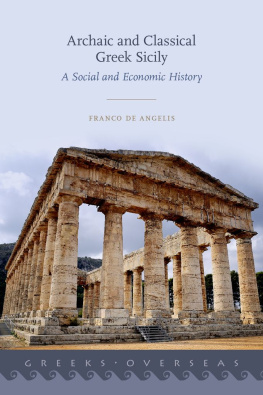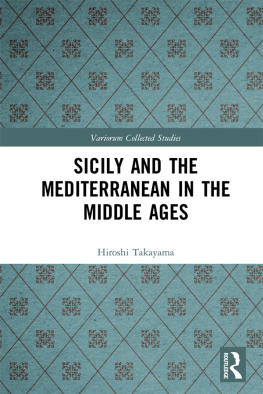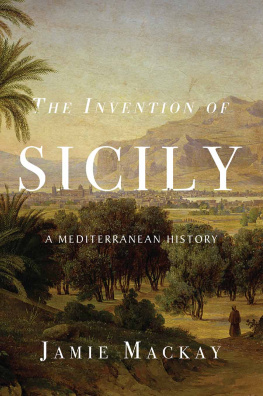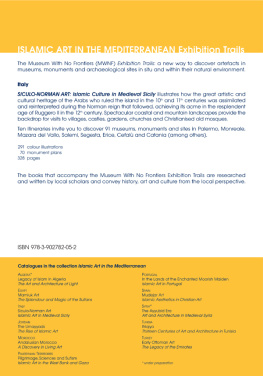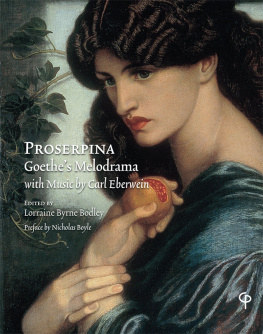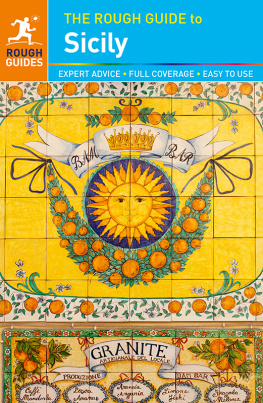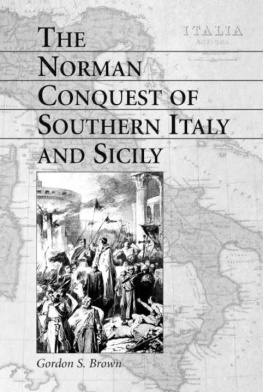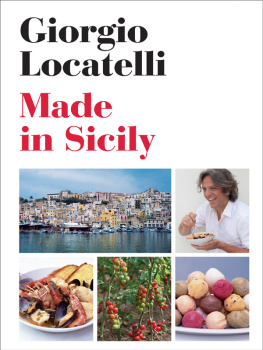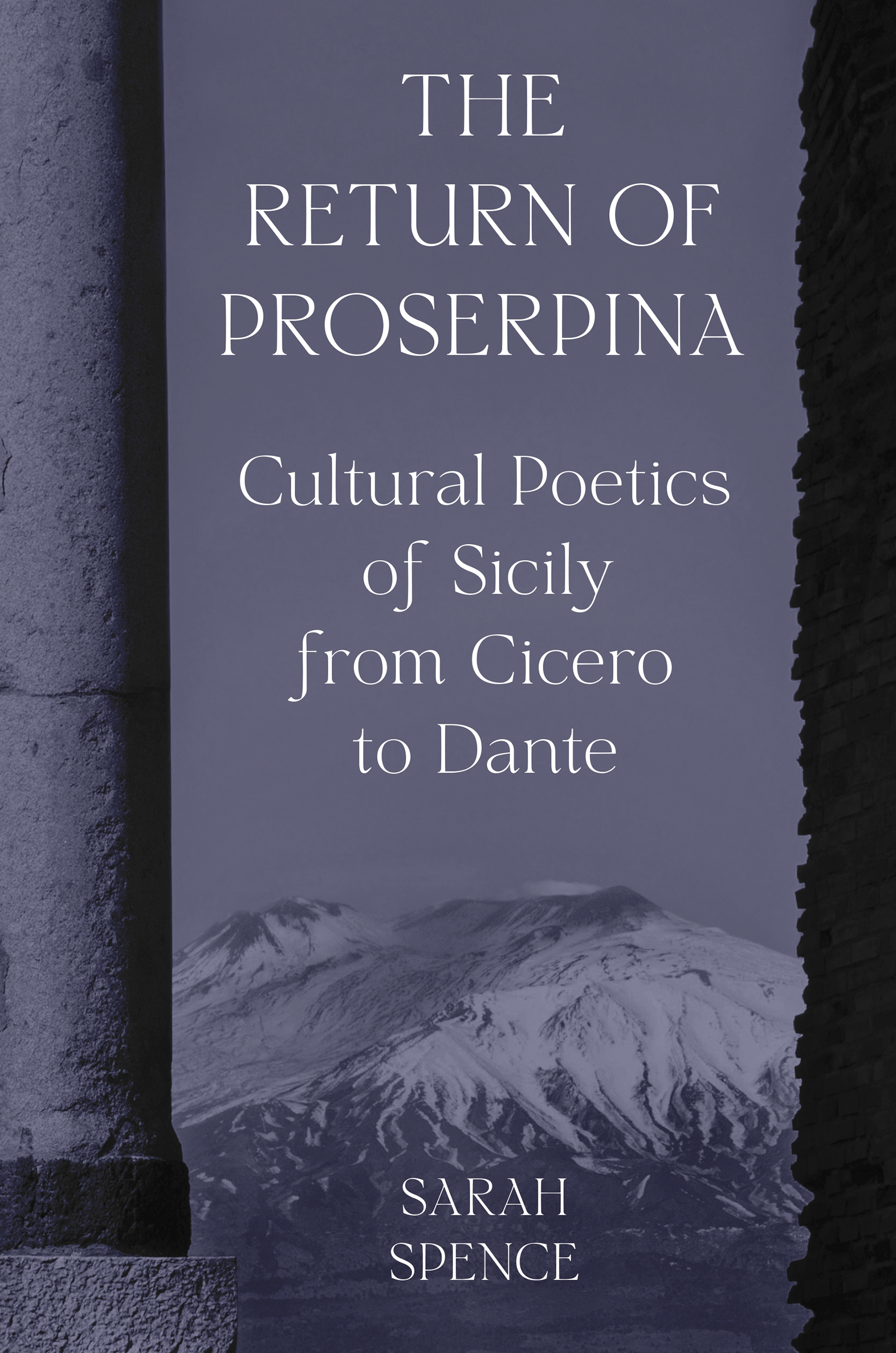THE RETURN OF PROSERPINA
The Return of Proserpina
CULTURAL POETICS OF SICILY FROM CICERO TO DANTE
SARAH SPENCE
PRINCETON UNIVERSITY PRESS
PRINCETON & OXFORD
Copyright 2023 by Princeton University Press
Princeton University Press is committed to the protection of copyright and the intellectual property our authors entrust to us. Copyright promotes the progress and integrity of knowledge. Thank you for supporting free speech and the global exchange of ideas by purchasing an authorized edition of this book. If you wish to reproduce or distribute any part of it in any form, please obtain permission.
Requests for permission to reproduce material from this work should be sent to
Published by Princeton University Press
41 William Street, Princeton, New Jersey 08540
99 Banbury Road, Oxford OX2 6JX
press.princeton.edu
All Rights Reserved
ISBN (pbk.) 9780691227177
ISBN (e-book) 9780691227160
Version 1.0
British Library Cataloging-in-Publication Data is available
Editorial: Anne Savarese and James Collier
Production Editorial: Sara Lerner
Cover Design: Katie Osborne
Production: Lauren Reese
Publicity: Alyssa Sandford and Charlotte Coyne
Copyeditor: Robert Birdwell
Cover Credit: jozef sedmak / Alamy Stock Photo
for Sandra Pierson Prior
friend, colleague, fellow traveler
and for Emma and Ned, whose journey begins on Sicily
CONTENTS
- ix
- xi
ILLUSTRATIONS
xiii
ACKNOWLEDGMENTS
THIS BOOK has benefited greatly from the expert advice of many, including specialists on volcanoes (Gilles Allard) and sailing around Sicily (Paolo Ferrari), as well as research assistants (Melissa Strickland and Maria Roberts), students in numerous classes, and audiences of many lectures (though Clayton Schroer and Laura Ingallinella, who read more drafts and heard more talks than most, do deserve special mention). Three Elizabeths share my interest in Sicily and its role in literary and intellectual history: Elizabeth Wright, Elizabeth Kassler-Taub, and Elizabeth Heintges; they seemingly never tired of hearing my latest thoughts about Trinacria. Colleagues who read drafts meticulously, James Simpson, Courtney Wells, and the anonymous readers for Princeton University Press, are owed deep gratitude, as is acquisitions editor Anne Savarese. Michael Putnam deserves special mention for the meticulous care he lavished on multiple phases of different drafts; I remain, as always, in his debt. I also thank the Department of Classics at the University of Georgia for support throughout the project (with a special nod to my colleague there, Erika Hermanowicz, who encouraged this project over the years) and the Department of the Classics at Harvard University for access to Widener and Smyth Libraries. Henry Gruber compiled the bibliography with rare precision, a true searchlight casting for faults. Thanks as ever to my husband, James McGregor, who, in addition to his recurring role as sympathetic and informed listener, also drove willingly around Sicily, including up and down more mountains and valleys than one island should really be allowed to contain.
Earlier versions of sections of these chapters were published in the following journals. They are reprinted with permission:
Reading against the Grain: Hypercorrection in a Medieval Cicero, Bollettino del centro di studi filologici e linguistici siciliani 29 (2018): 519. Reprinted by permission.
The Geography of the Vernacular in Dante, Tenso 28 (2013): 3345. Reprinted with permission of the Socit Guilhem IX, publisher of Tenso.
Meta-Textuality: The Boat-Race as Turning Point in Aeneid 5, New England Classical Journal 29 (2002): 6981. Reprinted by permission.

MAP. Sicily
Introduction
NEGOTIATING EMPIRE
To have seen Italy without having seen Sicily is not to have seen Italy at all, for Sicily is the clue to everything.
JOHANN WOLFGANG VON GOETHE, ITALIAN JOURNEY <17861788>, TRANS. W. H. AUDEN AND ELIZABETH MAYER (NEW YORK: NORTH POINT PRESS, 1982), 240
SICILY, THE triangular island that all but touches its neighboring Italian peninsula, is a land rich in history and myth. Many of those accounts tell of invasion, yet there is one, the myth of Proserpina, that enables the island also to play a different role. In the Roman form of that myth, the goddess Ceres daughter is abducted on Sicily by Hades, the god of the underworld, while she is picking flowers with her friends.
From Roman antiquity through the Middle Ages, the history and culture of Sicily join with the myth of Proserpina to help poets shape a narrative of Western empire. Sicilys strategic location has been studied as key to many civilizations, from the Western development of the Greek world to the conflict of Muslim and Norman cultures in the Mediterranean, while the abduction and recovery of Proserpina has been used to explore a wide range of topics, including female maturation and the origin of the seasons. Her story has also been used to present empire as a form of rape. Yet from the moment in the orations against Verres (70 BC) when Cicero praises Sicily as both Romes first overseas province and the mythic location for the tale of Proserpina, the island comes to offer poets a setting for forces resistant to empire and a location for displaying and even reclaiming what empire had subsumed. In the poetry we will investigate, Sicily enables a discussion of empire in terms of balance, loss, and negotiation by authors as separated in time and culture as Vergil, Claudian, and Dante. Analyzing why and how such an affiliation remains meaningful throughout a time of great cultural turbulence is the project of this book.
It is no coincidence that the literary representation of Sicily in the Latin literary tradition is rooted in the rhetoric of Cicero, since rhetoric as a genre explores the interdependence of language and culture. Nor is it surprising that Dantes concerns about the nature of Purgatory and the process of redemption are likewise situated, at least on some level, on Sicily. From the time Cicero identifies Sicily as both the first province and the location of the abduction of Proserpina, the notion of empire becomes linked inextricably with a dual negotiation: in texts that draw on Cicero, empire becomes perceived and described in terms of issues of loss and recovery, and these abstract concerns are thereby granted a specific location, a local habitation and a name.
The texts studied here all explore this cluster of ideas: the poets draw on Cicero, either directly or indirectly, and all are engaged in the process of debating the nature of effective government, whether it be the Roman Empire rising during the time of Vergil and Ovid, the changing empire in the time of Claudian, or the new vision of imperium Dante proposes in the Commedia. In every case Sicily offers a setting for negotiating empire: it is as important that these texts take place on Sicily as it is that they bear only a passing resemblance to the Sicily of their day. At the same time, the myth of Proserpina not only remains identified with the island, but offers in its narrative a means for revising the very shape of empire. That tale, known perhaps most widely through the Homeric Hymn to Demeter, is often read as an agricultural or maturation myth and was situated originally in the eastern Mediterranean. Through the course of the texts studied here, though, it comes to be centered on Sicily and to offer a myth of Western empire, even while critiquing it. Like Vergil, Ovid sees this form of imperialism as destructive of Italian culture. But by revisiting Venuss conquest of the underworld in the context of other imperial texts, Ovid launches his own understanding of empire, which is less about Italy and more about poetry. As we shall see, Ovids interest in empire is split: in the political world he presents it as destructive; in the poetic world, he sees it as creative. For Ovid, conquering the underworld means, above all, gaining control of the future of poetry. In Ovids hands, empire becomes a textual strategy.


